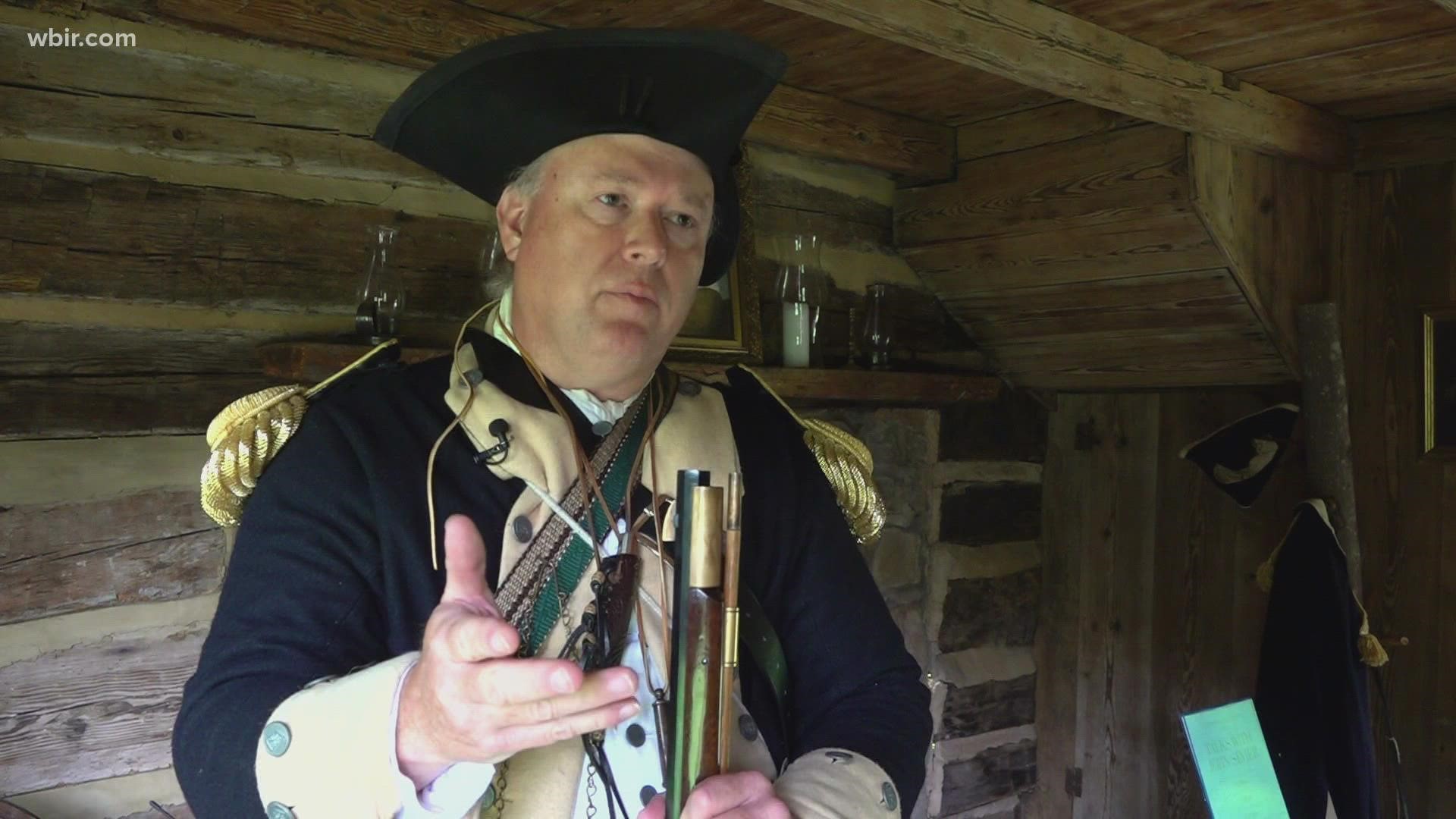KNOXVILLE, Tenn. — There's a lot to appreciate about Tennessee. The state's known for the Great Smoky Mountains National Park, vivid country music scene and being home to the Vols.
But, before all those assets made their mark on the state, settlers explored the lay of the land.
On Saturday, historic reenactors portrayed what life was like in the 1790s. They did this at the Marble Springs Historic Site.
"We had a lot of settlers moving from the east trying to purchase land and make a life for themselves," said historic reenactor Dr. Arnold Bridges. He was acting the part of Dr. James Cosby, a well-known physician in the area during the time period. He was also a close friend of John Sevier.
Bridges relayed that the 'olden days' were a tough time for many folks. They were learning how to make the best use of the lands and the threat of disease and illness.
"It was very difficult by our standards. They had constant threat of diseases like typhoid and malaria," Bridges said. "The settlers, a lot of them caught fire, they drowned crossing rivers and creeks. It was a very difficult life."
Despite all the challenges, colonies popped up across Tennessee. Even before the Revolutionary War, settlers were forming their own type of government. At the time, it was a new way of thinking.
"In our government, every person in the settlement had a vote or a say in how the government operated. So we became the very first democracy in North America," said Bob Jones, who was acting the part of John Sevier, also known as the 'Father of Tennessee.'
"In 1976, Congress passed a bill and President Washington signed it, and this became the state of Tennessee," Jones said.
He's been acting the part of John Sevier for a long time and knows some pretty extensive history about the state.
"I [ John Sevier] was elected and served as the very first Governor of Tennessee, and I served six intermittent terms as Tennessee's governor," Jones said.
Jones also relayed the fact that John Sevier led the Battle of Kings Mountain, a monumental turning point in the Revolutionary War. He was a successful politician, he had two wives, and 18 children, and was the governor of two states (if you include the lost state of Franklin.)
Jones even shared how Tennessee secured its nickname.
"Tennessee had always sent the most volunteers into war, and because of that, we became known as the Volunteer State," Jones said.
Now, 226 years late, Jones said our state's legacy of greatness lives on.
"When we talk about American exceptionalism, we can certainly talk about Tennessee exceptionalism," Jones said. "We have upheld proud tradition for 226 years. I'm very proud to be a Tennessee and I think everybody in Tennessee should be very proud."
He knows the state's population is rapidly growing. He hopes those new folks inherit this history as their own, and continue to remember it, teach it and treasure it.
"I hope they can share our history and contribute as much as we in our ancestors have," Jones said.
Tennessee officially became a state on June 1, 1796, when President George Washington made it the 16th state to join the U.S. Knoxville was the state's first capital too.

